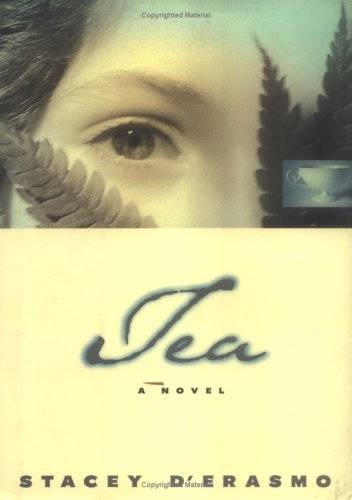Tea
Stacey D’Erasmo

All of which brings us to Tea, D’Erasmo’s first work of fiction. Essentially a coming-of-age tale, it’s divided into three periods in the life of one Isabel Gold–from girlhood through her early 20s. The first section, ‘Morning,’ is weakest, full of the familiar tropes of damaged childhood: the beautiful suicidal mother, the passive, clever narrator who keeps staring out the car window. But as the book picks up, D’Erasmo sharpens her focus, and Isabel’s world takes on a vibrant particularity and humor. Here, for instance, is a slyly hilarious description of a film project she and her girlfriend are working on:
Their film was experimental; it incorporated all the theories they both knew about film, but, they both felt certain, went beyond those theories…. It didn’t have a title yet; they couldn’t find the phrase that encompassed, or referenced, all the myriad things their film was. It was political. It was nonlinear. It was diffuse. It made use of film as film.
Passages like this call to mind the early-1990s film Go Fish, which also took place in an East Coast world of smart, gay women just out of college who are settling into an urban subculture and making homes in a city where their desires can be easily expressed and absorbed. Fans of that film’s liberal-arts-grad realism will welcome Tea. But readers who have anxiously followed D’Erasmo’s work may chafe when coming across details such as Pier 1 rattan chairs, La-Z-Boy recliners, and Hill Street Blues–specifics that can date and sometimes diminish this intermittently powerful work. –Emily White
Check for it on:
Details
| ISBN | 1565122437 |
| Genre | Award Winner; Fiction |
| Copyright Date | 2000 |
| Publication Date | 19-Mar-04 |
| Publisher | Workman Publishing Co. |
| Format | Hardcover |
| No. of Pages | 317 |
| Award | ForeWord Magazine’s Book of the Year Award – 2000 (Gold – Gay/Lesbian Fiction) |
| Language | English |
| Rating | Great |
| Award | ForeWord Magazine’s Book of the Year Award – 2000 (Gold – Gay/Lesbian Fiction) |
| BookID | 12941 |
